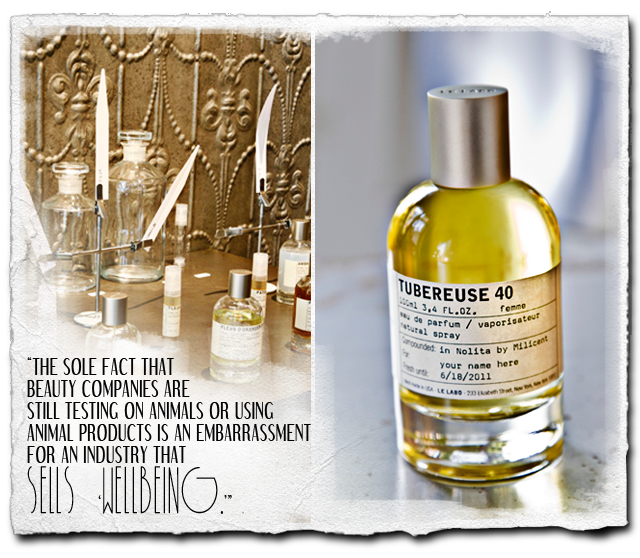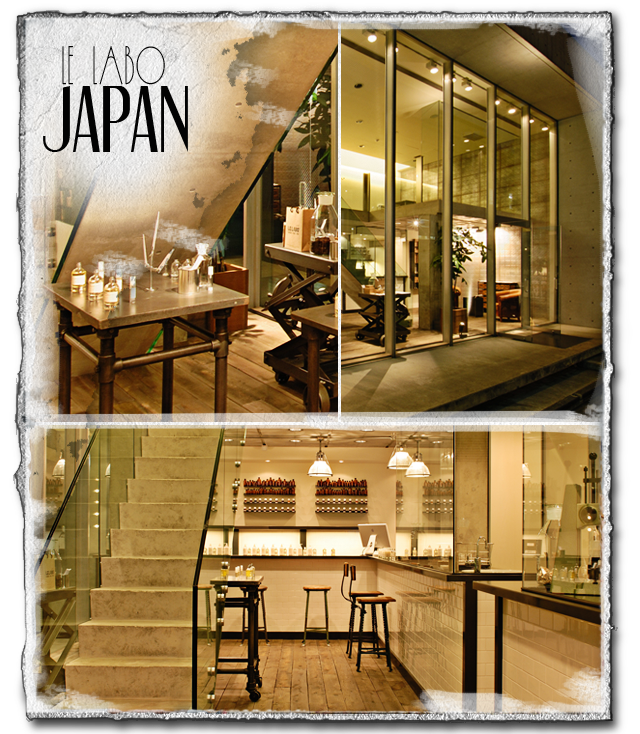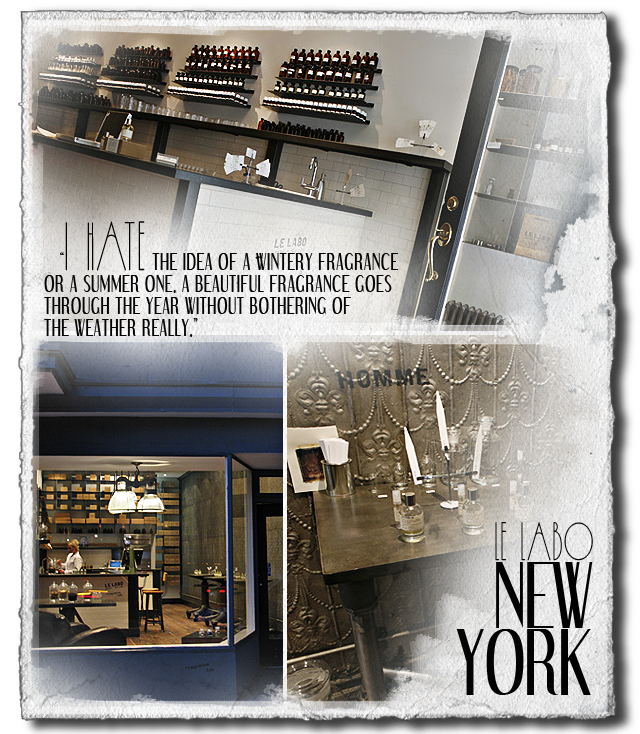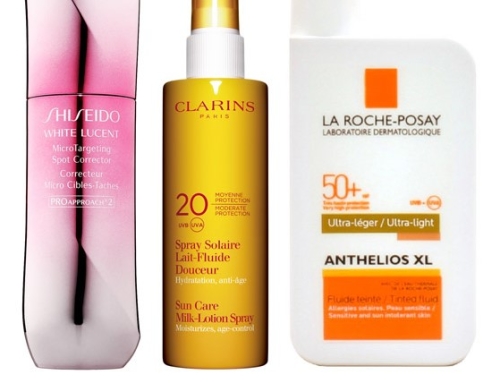Since the dawn of early civilization, perfume has captivated human beings. Just think frankincense and myrrh. One needs only to look back at the history of ancient Egyptians, who incorporated the use of perfumed balms into religious ceremonies to gage the expansive stretch of fragrance history. From its earliest development and usages, we transition into the evolution of the master perfumer and noteworthy creations including the floral spiked scent blended by Marie Antoinette’s royal nose, Jean-Louis Fargeon for her majesty in the late eighteenth century — re-imagined for the current century as Lubin’s Black Jade eau de perfume. Then come the 1920s, and with its generation’s entrance into the the modern era of fashion, a turning point in the world of perfumery takes hold. Capturing the attention of the period’s trendsetters was Chanel No. 5, a new, original style of fragrance created by Gabrielle (“Coco”) Chanel, in partnership with renowned nose, Earnest Beaux using the world’s first aroma chemicals: aldehydes. A golden moment in fragrance history, the popularity of the scent was rejuvenated under Marilyn Monroe’s celebrity endorsement in the 1950s, when she famously declared she wore nothing to bed but “five drops of Chanel No. 5.”  From the sales spawn out of Monroe’s celebrity endorsement then, to today’s overstocked fragrance market of 20,000 or so formulations, including a litter of celebrity “created” scents, such as Madonna’s recently launched Truth or Dare perfume, the widening of choice has made it increasingly difficult to decipher unique from mass-produced. Eager to climb out from under the eau de perfume pile, and learn the trick to discovering one’s ideal personal fragrance, we consulted Fabrice Penot, co-founder of Le Labo, the brand that’s taken on challenging stale market philosophies with its innovative approach to hand manufacturing high-end fragrances, compounding the perfumes freshly in stores before the customer. Boasting classic scent profile composed by preeminent perfumers and noses, and boutiques in New York, L.A., London and Tokyo, not to mention availability via global merchants from The Corner in Berlin across the ocean to Toronto’s Gee Beauty, Le Labo’s “olfactory resistance” is clearly on to something, and we want to get in on the action.
From the sales spawn out of Monroe’s celebrity endorsement then, to today’s overstocked fragrance market of 20,000 or so formulations, including a litter of celebrity “created” scents, such as Madonna’s recently launched Truth or Dare perfume, the widening of choice has made it increasingly difficult to decipher unique from mass-produced. Eager to climb out from under the eau de perfume pile, and learn the trick to discovering one’s ideal personal fragrance, we consulted Fabrice Penot, co-founder of Le Labo, the brand that’s taken on challenging stale market philosophies with its innovative approach to hand manufacturing high-end fragrances, compounding the perfumes freshly in stores before the customer. Boasting classic scent profile composed by preeminent perfumers and noses, and boutiques in New York, L.A., London and Tokyo, not to mention availability via global merchants from The Corner in Berlin across the ocean to Toronto’s Gee Beauty, Le Labo’s “olfactory resistance” is clearly on to something, and we want to get in on the action. 
Let’s start with the basics, how do you determine what scents pair best with your own natural scent?
Well, this is when samples are handy. You wear the scent you like on blotter and see/smell how it works with your own chemistry. There is no other test than your own.
Are natural ingredients better quality scent-wise than artificial ones?
It depends. There are very high and very poor quality ingredients in nature and from synthetics. You can’t judge an ingredient by wether it is natural and synthetic. Does it smell interesting, and is it safe? These are the questions. And there is a lot of natural [scents] that are unsafe and synthetics that are very safe, so really that’s should not be a debate. What should be one is whether or not you harm anyone or anything to create a perfume. Do you contribute to the end of a vegetal specie, or do you contribute to animal cruelty by using a perfume with animal ingredient in it? These are questions that matter. 
Once you ask all those questions and select a perfume, how long can you keep a bottle without it being spoiled by age?
Truth is there is no real time frame. At Le Labo, we say a year after the date of formulation because we want our clients to realize how much a perfume is fragile. But kept away from light, oxygen and heat, it can last much longer. Usually, the top note is the one that gets damage first. It is pretty obvious if you smell an old eau de cologne when you spray it that the freshness, the brightness is not what it used to be.
Do you believe it is possible for individuals to find their ideal scent on shelves?
I think there is enough perfumes already launched out there to find the right scent for you. But there are so many perfumes and so little time. Truth is, you’ll find it when you stop looking.
What are the notes in your own ideal fragrance?
The notes are not important. The effect of the composition is. And it should be a gentle smile, the trust that what’s left to live is going to be even more beautiful than what’s left behind.
I think that may be my ideal scent as well, it sounds lovely! Is more less when it comes to fragrance?
Yes…it is more when it comes to fragrance. Perfumery should be about fun.
Are fragrances season specific, or is that all marketing?
I don’t know how to answer that really. I don’t think so. I hate the idea of a wintery fragrance or a summer one. A beautiful fragrance goes through the year without bothering of the weather really. Let’s leave these considerations to the ones who wonder too much.
That in mind, you probably would rather not talk spring scent trends…
I don’t want to sound snob, really, but this brings us back to trends and seasons and blah blah. You seem to be a serious journalist, this should not be a concern of yours. Let’s talk about creation, not trends.
Okay, let’s skip it. What about the evolution of general fragrance trends, for example is wearing a scent less of a luxury and more common practice now?
Well, niche is the new black in perfumery, very good for us. But if designer brands had respected their clients giving them beautiful perfume and not soups for years, the former would not fly away to us. 
That is good for you, and for the customer as well. What is the most popular fragrant note/ingredient used in your lab?
Ambroxan.
Why develop Le Labo as a vegan-friendly company?
Just because Eddie and I are vegan and we just have a need to live “in coherence.”
You mentioned earlier that consumers need to question whether their purchases contribute to animal cruelty, flipping things over to the manufacturer’s side, what is your opinion of the industry’s current practices in terms of adhering to a cruelty-free process when developing perfumes?
Don’t get me started on this subject. The sole fact that beauty companies are still testing on animals or using animal products is an embarrassment for an industry that sells “wellbeing.” Selling “wellbeing” by creation [of] pain, sufferings and “bad being” is a contradiction these guys will have to face. I wish consumer groups will increase their power to make these companies change their practices because they won’t change because it is the right thing to do, they will if they feel it might hurt their market shares.
How can concerned consumers help bring about change?
If you resonate with this subject, and I believe more and more people do, you can pressure these companies by for example signing up on Peta, where there is a lot of information on what is happening and how you can contribute to end it.











